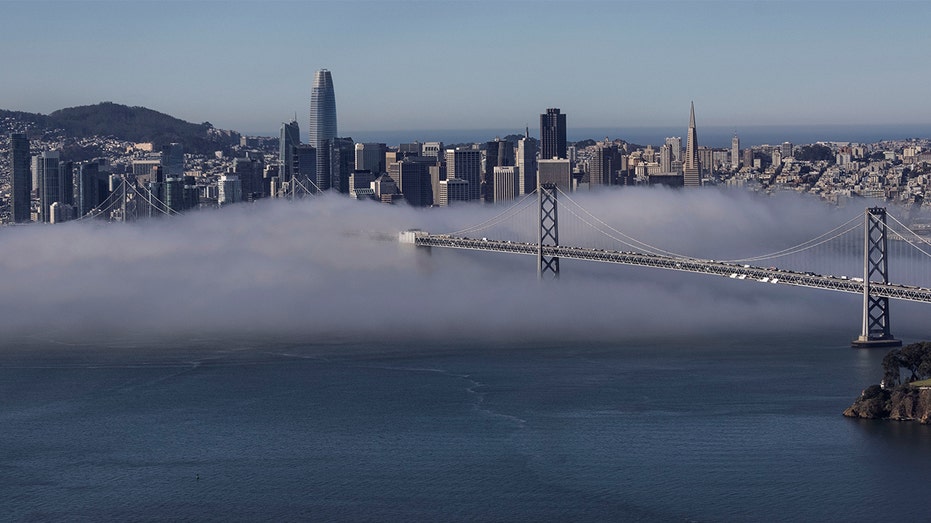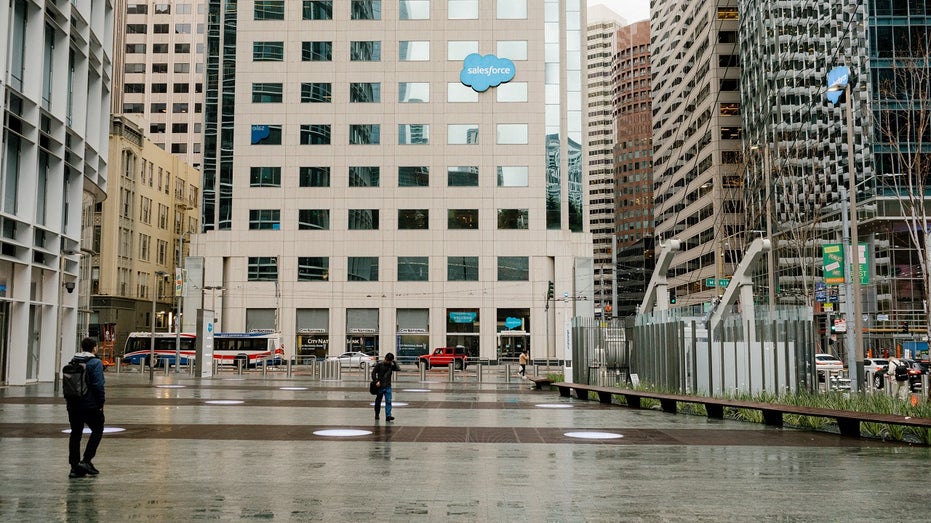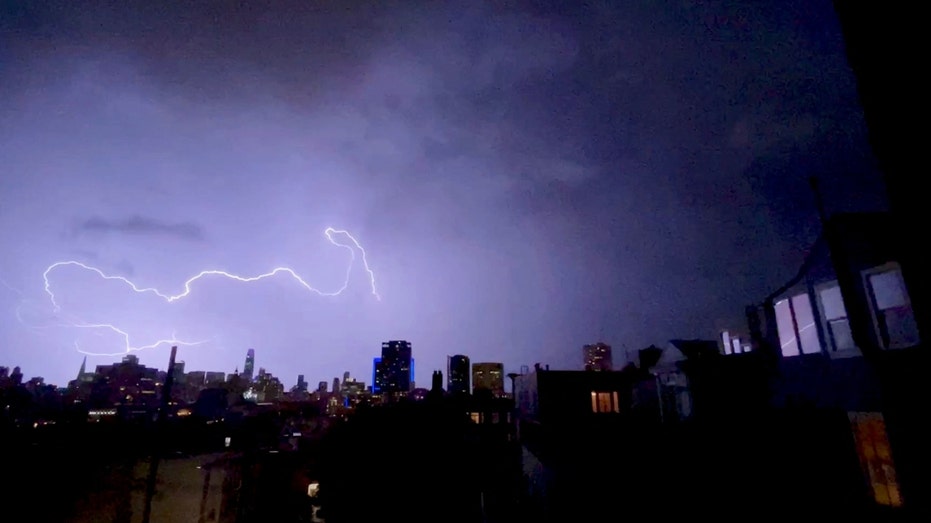Can AI stop San Francisco’s 'tech exodus'?
New data shows San Francisco tech firms are hiring again, and artificial intelligence is helping
San Franciscos laws made city a magnet for drugs dealers: Tom Wolf
Recovering addict-turned-activist Tom Wolf discusses solutions to San Francisco's drug and homelessness problems on Varney & Co.
San Francisco has had a hard go of it in recent years, but there's hope that artificial intelligence might restore it for a third "Gold Rush."
Much of the world-renowned tech hub's problems – not all – were brought on by its stringent and extended COVID-19 lockdowns, which caused the California city's tech-heavy workforce to jump into remote work with both feet.
Sf.citi, a group founded in 2012 that represents San Francisco tech companies, began tracking what it called San Francisco's "tech exodus" during the pandemic.

San Francisco has been hit hard economically due to its COVID-19 lockdowns, but data shows the tech industry is still there – just not in offices. (REUTERS/Carlos Barria / Reuters Photos)
In its last report on the topic in March 2022, the organization wrote on its website, "Of course, some of the forces driving this phenomenon—remote work and the growing appeal of cities beyond San Francisco—predate 2020. Few can argue, however, that the pandemic has accelerated these trends. What we’re seeing today is nothing short of a mass migration of tech companies and tech employees outside of the San Francisco Bay Area."
Sf.citi pointed out that in 2021, the Bay Area's proportion of venture capital investments plummeted to its lowest point in over a decade, noted that San Francisco is the most expensive city in the U.S., and criticized the progressive city's "three substantial tax increases on the tech and business community" in 2020 alone.
No doubt, some tech companies joined those in other industries in fleeing. Austin, Texas, is one city that has been a beneficiary and so is Miami, Florida.

Salesforce office buildings in San Francisco, California, US, on Wednesday, May 3, 2023. San Francisco's office-vacancy rate soared to a record 27.6% at the end of 2022, compared with just 3.7% before the pandemic. (ason Henry/Bloomberg via Getty Images / Getty Images)
Sf.citi linked the tech exodus last year to steep increases in vacant office space, which is an ongoing problem for the city.
But according to Ted Egan, San Francisco's chief economist, the city and county have a lot more tech jobs now than they did at the start of the pandemic. He says it's not that tech has left, it's that the companies have abandoned their offices and workers have moved away from houses in proximity to those former workplaces.
And there is a possibility AI is driving San Francisco tech firms to hire again.
POTENTIAL AI REVOLUTION PUTS 27% OF JOBS AT HIGH RISK, REPORT SAYS
The latest report from the city and county of San Francisco's Office of Economic Analysis shows the area's tech industry added jobs in May, following several months of job losses amid high-profile layoffs. In fact, the sector saw a 40% bounce back of tech jobs that were lost late last year during layoffs. But Egan notes that's just one month of data, and he "doesn't want to get carried away."
"What we saw was businesses switching to remote work in a major way, but tech continued to add jobs," Egan told FOX Business, speaking of the trends since the pandemic hit. "Even though we had some layoffs in the second half of last year, even in our low point a month or two ago we still had more jobs than we did at the start of the pandemic. So I think that the narrative about tech leaving San Francisco isn't really borne out by the data."
Some outlets have attributed San Francisco's May jump in tech jobs to the rise of AI startups.
San Francisco's 'mass exodus' claims are not true: Rep. Ro Khanna
Rep. Ro Khanna, D-Calif., discusses how bad San Francisco's crime issue is getting as Bay area conditions worsen on 'Cavuto: Coast to Coast.'
"Who knows, it may have just been a blip or it may be the start of a turnaround. There isn't any way for us to sort of break down what within tech is growing," he explained. "People can speculate about AI [being the driver] – that's probably not crazy."
Egan says AI has attracted a great deal of investment for San Francisco because firms working on the new technology are generally centered in the Bay Area, like OpenAI, the creator of ChatGPT. When interest rates rose last year, he said, it had a "serious, depressing effect on venture capital," but generative AI's emergence has driven new investments and San Francisco will benefit from it.
Still, the problem of vacant offices remain, and 80% of San Francisco's gross domestic product is generated from office activities.
CENTURY-OLD BUSINESS LATEST CASUALTY OF SAN FRANCISCO RETAIL CLOSURES
Commercial real estate company JLL's latest data shows San Francisco's direct vacancy rate was at 19.2% in the first quarter of this year, and sublease availability increased to the second-highest level on record, trailing only the first quarter of 2021.
Despite the fact that asking rent prices have been on the decline and leasing was at its lowest point in the first three months of this year than it was in the third quarter of 2020, JLL asserted "tenant demand has started to pick up, as demonstrated by increased touring activity from both traditional tenants and startups. Of note is a sizable increase in AI tenant requirements, which have doubled over the last three quarters."

Lightning strikes are seen above buildings in San Francisco, California, U.S., January 5, 2023. The city's office vacancy rates are the highest they have ever been. (Lapine/via REUTERS / Reuters Photos)
The report added that San Francisco "remains a hotbed for artificial intelligence companies nationally, most of whom have been founded in the city since 2020 and have quietly been touring the market and signing smaller short-term leases with the opportunity to grow."
GET FOX BUSINESS ON THE GO BY CLICKING HERE
Egan acknowledges there are growing signs from the industry but also notes San Francisco's commercial vacancy rate is the highest it's ever been. He said, "I think everybody knows at this point that commercial offices are under a lot of stress, not just in San Francisco, but everywhere."
He says the big question mark is: "When will offices get filled, and who will do it?"






















